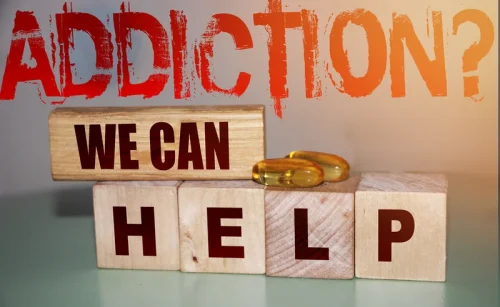
If loved ones question you, you may lie about how much you’re drinking. If you began drinking alcohol before the age of 15, you may be more likely to have AUD, especially if you’re assigned female at birth. Your risk of having AUD is three to four times greater if a parent has it, although many people who have a parent with a drinking issue don’t develop one as well.
Who is at risk for alcohol use disorder?
The constant agitation, drowsiness and confusion experienced by those suffering the effects of alcoholism are likely to cause problems for anyone in a relationship with the sufferer. People who find themselves in a romantic relationship with someone struggling with alcoholism may end up making excuses for their lack of attendance or improper conduct at social functions. They may find their options for other social interaction limited, and this may further be compounded by financial troubles or other problems related to the incidence of alcoholism. Heavy alcohol users may have trouble relating to teetotalers or those who do not share their propensity for drinking to excess, and they may attempt to convince friends or loved ones to join them in drinking. This can lead to additional problems as others experience the challenges faced by having a sufferer in their personal relationships. If you feel that you sometimes drink too much alcohol, or your drinking is causing problems, or if your family is concerned about your drinking, talk with your health care provider.

The non-addict partner
In addition to finding people who have had experiences similar to our own, we can learn more about how to care for our own health and well-being. The Substance Abuse and Mental Health Services Administration notes that families that are affected by alcohol problems have high levels of confusion and stress. This can make children who grow up in such environments more susceptible to substance use and other mental health problems. Loved ones of people with alcohol use disorder may feel less empathy for them and become more frustrated with them as time passes. We get how challenging this can be, but it may help to learn about how alcohol affects the brain. People with AUD and co-occurring psychiatric disorders bring unique clinical challenges tied to the severity of each disorder, the recency and severity of alcohol use, and the patient’s pressing psychosocial stressors.
Stay on top of latest health news from Harvard Medical School.
- But the stress that comes along with constant arguing can become a trigger for the person living with SUD to use drugs or alcohol.
- They found a significant three-way interaction between participant alcohol use, partner alcohol use, and gender in predicting partner negativity the following day.
- You can use this information to encourage them to seek something better, rather than to shame them.
- In addition, even individual differences in personality traits determine the types of emotion affected by the depletion of serotonin (Kanen et al., 2021).
- If you or someone you love has an alcohol use problem and are concerned about the impact it might be having on family and friends, talk to your healthcare provider.
- It was initially reported that women are less likely to engage in binge drinking patterns than men (Bobrova et al., 2010).
In addition to the financial and emotional toll alcohol misuse can have, domestic violence and child abuse may occur. Research indicates that 92% of victims of domestic violence reported that the assailant had used alcohol or other drugs on the day of the assault. Another study found that of those individuals who attack a partner, 60 to 70% had misused alcohol.8 The prevalence of alcohol in abuse situations does not necessarily mean that drinking causes the domestic violence, but it may be a factor in the violence. The impact of alcohol on relationships is widespread and can affect every single relationship a person is a part of. From intimacy problems and lack of emotional availability to the financial burden and negative effects on children, alcohol use disorder can affect partners, their children and other family members.
- If children are part of the equation, then there is a safeguarding issue that needs to be addressed.
- It may sound silly, but substance abuse shares many of the same side effects of stress and of other illnesses.
- Consistent with Haber and Jacob’s (1997) earlier work, Testa and colleagues’ (2014) results strongly suggest that any positive interpersonal benefits of discordant alcohol use among couples may be absent during episodes of concordant alcohol use.
- But what many people don’t realize is that even after sobriety, addiction can continue to have a negative impact.
- Generally, men have recorded higher activation of the amygdala (McRae et al., 2008) and the PFCs (Rahko et al., 2010) during emotional reactions.
Living with someone with a substance use disorder
Couples where a partner abuses alcohol are often very unhappy – in fact, they are usually unhappier than couples that seek marriage guidance for other reasons. As the alcohol abuse worsens, it starts to take more and more time away from the couple – taking its toll by creating an emotional distance between them that is difficult to overcome. These couples also report that they fight and argue a great deal, which sometimes can become violent. It is often the fighting itself that can create an environment or situation in which the partner with the alcohol dependency uses the substance to reduce the stress of their unhappy situation, meaning that a vicious cycle ensues. When was the last time you explored the role drinking plays in your life? If your answer is “I’m not sure,” it might be time to take a step back and reflect on whether or not you’re happy with your relationship with alcohol.

In fact, research from 2019 has shown that alcohol behavioral couple therapy can help participants drink less, decrease conflict, and increase communication between partners. A 2018 study found that in children with a strong family history of alcohol use disorder, the chance of developing substance use issues was higher. The survey results how does alcohol affect relationships showed that people in committed relationships who use alcohol during intimacy were more likely to be sexually aggressive toward their intimate partners. Being in a relationship with someone with alcohol use disorder can be challenging. Your husband may pick fights with you when he drinks or you’re no longer as intimate as you were before.

Daily data collection
The prevalence of AUD among persons treated for anxiety disorders is in the range of 20% to 40%,2,15 so it is important to be alert to signs of anxiety disorders (see below) in patients with AUD and vice versa. If you’re worried about a loved one’s drinking habits, you may https://ecosoberhouse.com/ want to think about doing an intervention. This is a face-to-face talk where you’ll lay out examples of their harmful behavior and suggest a specific treatment plan. You, and everyone else who’s present, will also share what you’ll do if the person refuses to get treatment.
If your loved one needs help
